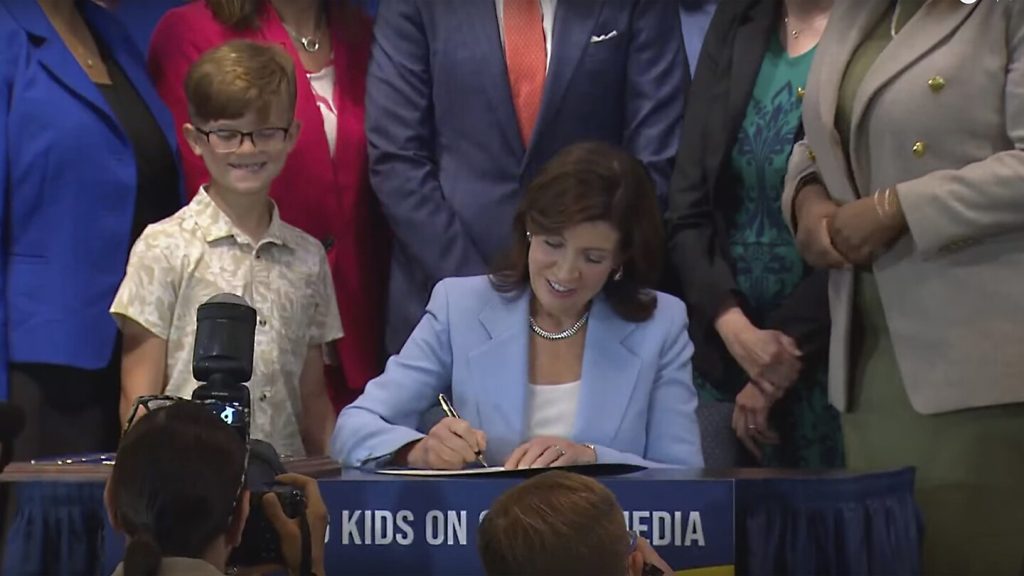New York Governor Kathy Hochul signed a bill on Thursday that allows parents to block their children from receiving social media posts suggested by algorithms, aiming to limit the addictive nature of these feeds. The legislation will restrict feeds on apps like TikTok and Instagram for users under 18 to only include posts from accounts they follow, rather than content suggested by automated algorithms. It also prohibits platforms from sending minors notifications on suggested posts between midnight and 6 a.m., with the ability to disable these provisions if a minor obtains parental consent as defined by the bill. The law will not be immediately implemented, as State Attorney General Letitia James will develop rules for verifying a user’s age and parental consent, with social media companies given 180 days to comply once the regulations are finalized.
Governor Hochul emphasized the importance of protecting children and giving parents control over their children’s online activity at a bill signing ceremony in Manhattan. This move is expected to lead to a lengthy rule-making process and potential legal challenges from social media companies. NetChoice, a tech industry trade group representing companies like X and Meta, condemned the legislation as an infringement on free speech and internet openness. According to Carl Szabo, vice president and general counsel of NetChoice, New York’s law mandates websites to censor content unless visitors provide identification to verify their age, which could lead to government tracking of online activities and sites visited.
The bill addresses concerns surrounding the way social media platforms use algorithms to present content to users, with the objective of keeping them engaged for extended periods. These algorithms consider various factors, including a user’s past interactions and preferences of similar users, to curate a personalized feed. This legislation reflects a growing trend of states regulating social media platforms, particularly in relation to children’s online experiences. In California, Governor Gavin Newsom announced plans to collaborate with the Legislature on a bill that would limit smartphone usage for students during the school day, following previous measures to restrict smartphone use in schools. While federal legislation on this issue is lacking, the topic is being discussed in Washington, with the U.S. surgeon general advocating for warning labels on social media platforms to address mental health risks for young users.
As pressure mounts on tech companies to address these concerns, some have taken steps to implement parental controls on their platforms. Meta, the parent company of Facebook and Instagram, introduced tools last year that enable parents to set time limits on the apps for children. The New York legislation, introduced in October, faced resistance from the tech industry in the Legislature. Attorney General James, a key proponent of the bill, highlighted the ways in which social media platforms manipulate children’s online experiences to maximize their time on these platforms, increasing the risk of developing mental health issues. By restricting the content shown on these platforms, the aim is to protect children from potential harm associated with excessive social media usage.


